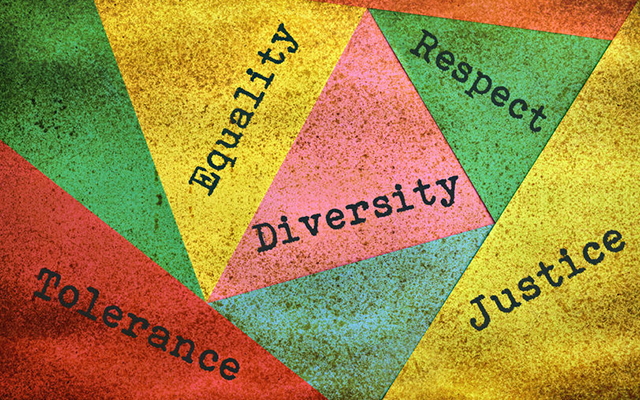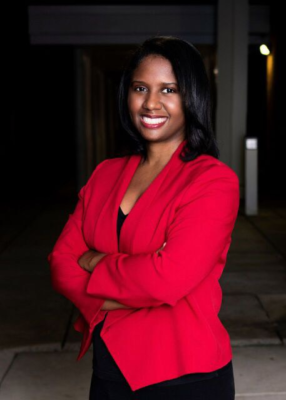Vice Chairman Akbar Discusses the Racial and Social Justice Commission
Freedom High School teacher Jahanzeb Akbar has been a voice in the Prince William community for years. He has been an advocate for racial justice and educational equity. Now, he is preparing for a new role as the recently appointed Vice Chairman of the Racial and Social Justice Commission. Akbar spoke with the PW Perspective about his new position and issues that the commission is looking into.
He spoke on how the Commission, which was formed in November, has been progressing as they get ready for their next meeting on Thursday. “I think this meeting is going to be the first step towards the actual work. We’ve passed the by-laws and the work plan as the first two meetings were more oriented towards an inner structure.”
Regarding Thursday’s upcoming meeting at the McCoart Building, “We have presentations that will be made by the officials from policing, education, government services and human rights. Some of the topics that will be discussed are the use of force, de-escalation training and obtain demographic data for schools that we haven’t seen before. We are looking forward to seeing what type of information they will provide.”
As an educator, Akbar has a particular interest in how local schools are addressing statistical anomalies. “Site based management has led to inequities. There are various differences between schools, and we’re trying to get to the root cause.”
“Funding is based per pupil, and we want to find out how the demographics of some schools are so much different from others,” said Akbar. “How is it that Unity Reed High School has an enrollment of 95% people of color? No zip code has that much of a concentrated population, so how did it end up that way?”
“If the schools that do have disproportionate amount of minority students are performing at a lower level than other schools, that is a question that we need to ask, and what can be done about it?”
During Thursday’s meeting, newly appointed Equity and Inclusion Officer Maria Burgos will be introduced, and Akbar is looking forward to working alongside her with the Commission. “We have a strong interest in having her play an active role to the commission. I’m a strong believer that implicit bias exists [in schools], and it impacts each of us. I encourage training for myself as well as for others. We have seen behavior that has negatively impacted implicit bias training. If our reports say that there’s not enough schools to be implemented, we will be offering solutions.”
Another topic that Akbar and the Commission will be looking into is the disparities in school discipline. “Black students are three times more likely to be suspended than white students, and this was known pre-pandemic,” said Akbar. “I’m interested in seeing if we will collect the data on the number of suspensions, and who is responsible for looking into this data, and what are the plans that are in place to see how did we end up there?”
“Fundamentally, we have to make a decision why we think it’s okay for Black and brown kids to be suspended more often than most. Prince William County is a minority-majority county, but we are among the highest rate of disciplinary suspensions. It is something that we seriously need to look into.”
“Chair [Shantell] Rock and I have looked into the school board to look into the disparities of black and brown teachers. It’s a 70-30 split in PWC. [School Board Vice Chairwoman] Loree Williams will be presenting that on Thursday.”
He believes that one of the ways to address the issues is to expand how different ethnic groups are not only classified, but addressed. “We look into issues as non-white and white. We can’t give white it’s own classification and the assign others into another big category. There’s disparities that exists into those groups as well.”
“Out of 94 high school administrators we have five as of 2019 that were Hispanic, yet we know they are the largest group of minority students. Those are the nuances that need to be resolved if we want to see change in our schools.”
He concludes by discussing the importance of having different voices being heard in an official capacity. “When we’re talking about what POC have incurred with systemic racism, we have people that have a seat at the table in PWC. So, we have the traditional organizations to hear the voices of those that have not been included within the system. If those systems are flawed, and we need to be more creative in how we reach the communities.”
“The public comment times are so critical, and we need people to reach out to us on an individual level. I’m talking about those who aren’t getting information from the county website. This is why it’s important to find ways to let them know there is a Commission that is speaking for them.”
For those who would like to participate in public comment time during the March 18 meeting, click on the link to sign up. Those who wish to participate remotely must sign up by 5 p.m. the day before the meeting.
Akbar can also be heard on the PW Colors’ podcast. Visit their link for episodes or follow them on Twitter @PWColors.


